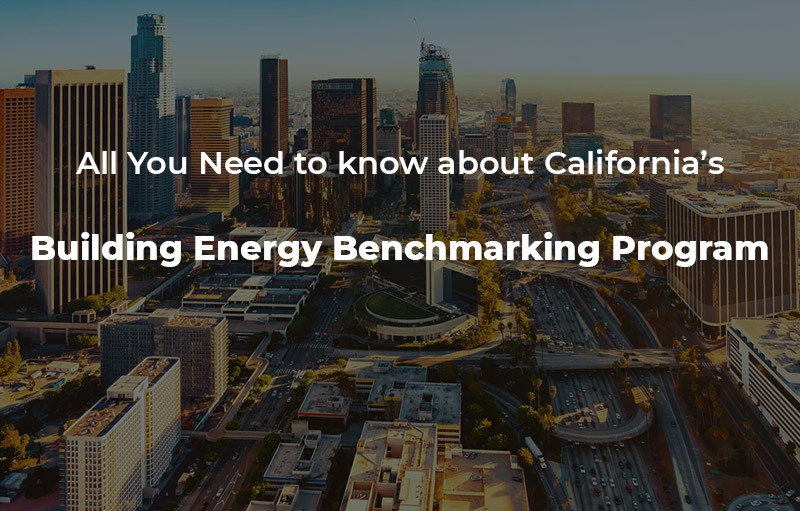
28 Oct All You Need to know about California’s Building Energy Benchmarking Program
California’s Building Energy Benchmarking.
Energy Benchmarking is a concept that is increasingly getting mentioned in real estate in California. It has become a crucial characteristic of buildings that property owners and managers of commercial buildings and multi-unit buildings now need to get accustomed to very well.
What The Law Says
Assembly Bill 802 (AB802)
Assembly Bill 802 (AB802) is California’s statewide building energy use benchmarking and public disclosure program for large buildings. The law requires that owners of commercial buildings larger than 50,000 square feet report annual whole-building energy use data to the California State Energy Commission. the legislation allows building owners, or their authorized agents, to obtain the energy usage data (across all tenants) for their building. In some cases, data may be obtained without authorization.
Benchmarking involves measuring performance and comparing it to peers using energy and water consumption data. Benchmarking offers an established framework to:
• Strategically assess the current performance of your buildings versus comparable buildings.
• Identify trends by comparing current and past performance.
• Discover areas of waste, in terms of energy and dollars.
• Unlock potential savings.
Who Is Required to Comply?
Disclosable buildings are those with more than 50,000 square feet of gross floor area. Owners of commercial buildings with more than 50,000 square feet and no residential utility accounts must report annually starting June 1, 2018. Owners of multifamily residential buildings with more than 50,000 square feet and 17 or more utility accounts must report annually starting June 1, 2019.
Deadlines
Reporting is due every year by June 1 for buildings with no residential utility accounts and buildings with 17 or more residential utility accounts. Information for buildings with no residential utility accounts and buildings with 17 or more residential accounts is scheduled to be posted after June 1. Comparative information on the performance of each building will be posted during the second reporting year for each group.
What happens if you don’t comply with CA AB802?
According to the bill, “A Civil penalty to be $500-$2,000 per day for each category of data the person did not provide and for each day the violation has existed and continues to exist.” If building owners fail to submit the report in time, they are offered a 30-day grace period after notification of the violation.
The ENERGY STAR Portfolio Manager is a free tool that building owners can use for creating the energy usage report. The California Assembly Bill 802 is not just a formality that building owners need to complete. It is a law that needs to be complied with strictly. There are some benefits that compliance can bring, apart from just avoiding the fine.
The Cotocon Group has over a decade of experience in Benchmarking Buildings across the US. If you would like help with your Benchmarking in California, Contact us.
